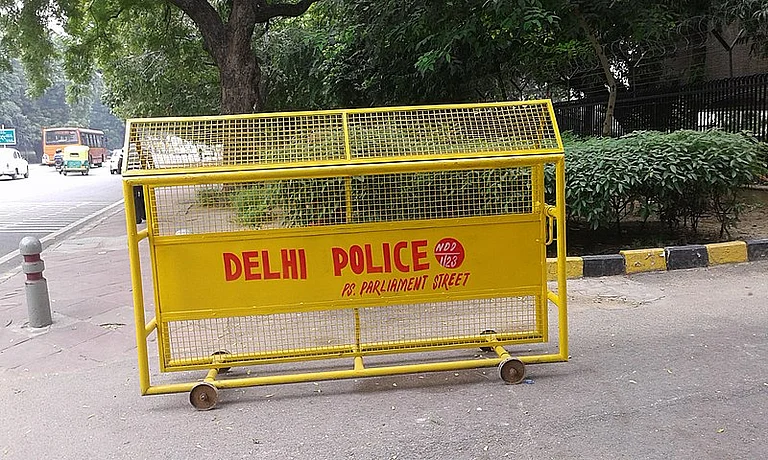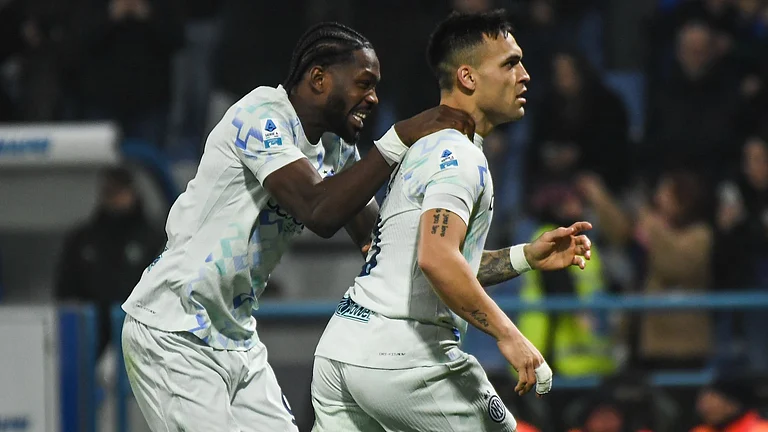Richard Armitage, Deputy Secretary Of State, Washington, DC, June 3, 2002 in an Interview with CNNI's Q&A with Zain Verjee
Zain Verjee: The international community is intervening in an effort to defuse the crisis. US Defense Secretary DonaldRumsfeld will be heading to the region soon, so too will US Deputy Secretary of State Richard Armitage. Ispoke to him a little earlier, and I started by asking him what he was going to tell both sides.
Richard Armitage : Well, in the first instance, before I tell people something, I think I should listen to them and listen tohow they view the situation. I'm following up Foreign Secretary Jack Straw of Great Britain's trip, and we'llsee if we can move the ball down the field a little bit from where Mr. Straw left it.
Zain Verjee: Are you confident the United States can persuade both sides to stand down?
Richard Armitage : I'm confident we're going to do our absolute best to try to bring that about. Both sides have real concerns.Obviously India was grievously attacked, both the parliament and that hideous crime against the family of armysoldiers, and they're feeling very ill-served right now, and we'll do our best to try to bring things down.
Zain Verjee: I want to address that in just a minute, but I'm wondering if the United States is carrying any comprehensiveplan to defuse the situation here. Is there anything new that you're bringing in to push the process forwardand break the ice?
Richard Armitage : Well, if there's a comprehensive plan, I think it should be best shared both with President Musharraf andPrime Minister Vajpayee. I think right now it's a little soon for a comprehensive plan. We just need to try toget to a step-by-step situation where we can bring down the tensions.
Zain Verjee: Through things such as confidence-building measures and so forth?
Richard Armitage : Well, we're prepared to discuss a range of CBMs, or confidence-building measures, but I've got a feeling thatI'll be doing a lot more listening initially on this trip before I lay out anything.
Zain Verjee: What are you hoping to hear?
Richard Armitage : Well, I'd like to hear again a reiteration from President Musharraf of the fact that nothing is moving acrossthe line of control. And I would hope that this would be visible both to the United States and India. From theIndian leadership I would hope to hear that they have not quite run out of patience. There's a greatresponsibility that comes with being in the superpower club. India is about to join the world on thatsuperpower stage, and I hope that she can restrain herself and act very responsibly.
Zain Verjee: An Asian regional security summit is taking place in Kazakhstan, a lot of international pressure, diplomacyon India and Pakistan. What do you expect to come out of this summit?
Richard Armitage : Well, I certainly expect that Mr. Putin and President Nazarbayev will be meeting with Mr. Vajpayee and Mr.Musharraf, and I suspect we'll get further insights into how the situation is developing and how those twoleaders see their respective positions. I am sure our Russian friends will share this with us, and then we'lltake it from there.
Zain Verjee: Chinese President Jiang Zemin also going to be there as well. How much influence do you think China has inthis situation, and is the United States interested in learning about that dynamic and playing off of it aswell?
Richard Armitage : Well, China does have quite a bit of influence, particularly with Pakistan. Secretary Powell has spoken onseveral occasions with Foreign Minister Tang of China about this situation, and we are hopeful that China willuse their influence to dampen down the tensions in the region.
Zain Verjee: The United States asking the Indian Government to show restraint, but there is some sense of anger andresentment also in India by the majority of people toward the United States, saying this is an example ofAmerican hypocrisy: on the one hand, you're fighting a war against terror, but the Indians see their fight inthe war against terror that's directed toward them, but yet they're being asked to be restrained.
Richard Armitage : As I indicated earlier, there is a certain amount of restraint I think that falls with one being a very largeand growing power such as India. But there are differences, I believe, between the present situation, asterrible as it is and as aggrieved as India has a right to be, and the United States war on terror, not theleast of which is the United States had mounted and formed a mighty international coalition, and that's notthe case in this situation. And in Afghanistan, we were not expecting after our war on terrorism to live cheekby jowl with Afghanistan. We are separated by quite a distance. And India and Pakistan will live next to eachother, no matter what happens.
Zain Verjee: But a lot of innocent people in India have been targeted. They say, look, the Americans have waged a waragainst al-Qaida, against the Taliban. The United States has shown support for Israel in what Israel says isits fight against the war on terrorism as well. So there's a sense that there's a double standard here, andit's just not fair. How will you address that?
Richard Armitage : Well, I think if I were asked the question you just asked, I would say that you're right, innocent civilianshave been killed, and this is a tragedy; how many more innocent civilians would be killed if these two nationsgo to war? And our entire efforts are going to be to try to keep that from happening, to try to find adiplomatic solution to this very knotty problem.
Zain Verjee: Another problem potentially for the United States is the position that Pakistan, a key ally of the UnitedStates in the war against terrorism, the war in Afghanistan, but yet the United States now pressuring Pakistanto lower the level of infiltration across the line of control. How do you marry that kind of situation thatyou're positioned in with Pakistan, as ally on the one hand, but on the other you need to pressure them to getthings done?
Richard Armitage : Well, I think the entire international community is calling on President Musharraf to assure that what hesaid on CNN on the 1st of June is the case, and that is that nothing is happening across the LOC. For ourpart, we do have activities on the western border of Pakistan with Afghanistan, and we would hope that whatPresident Musharraf said the other day -- that is, that only some elements have moved from that struggle -- isthe case, and we'll be able to continue our activities.
Zain Verjee: Are you worried, then, about American interests in the region?
Richard Armitage : I'm worried first of all about regional interests, and I'm worried about citizens of Pakistan and India, andsecondarily worried about our interests.
Zain Verjee: The United States putting pressure, as I said, on Pakistan to stop the LOC infiltrations, though Pakistan, asyou say, is denying that that's happening. Are you concerned, though, about the kind of domestic backlash itmay have on Pervez Musharraf. If concessions are made; it could ultimately have a destabilizing effect onPakistan and create a whole slew of other problems?
Richard Armitage : Well, I noted that in the past Pervez Musharraf has stated that he wanted the silent majority of Pakistanisto stand up and be heard, and that silent majority were people who wanted to get on with their lives, and 140million people who deserve to have a bright future. And I'm hoping that those are the people who will be heardfrom, and they'll support President Musharraf in his activities to lower tensions.
Zain Verjee: Are you going to press India to dialogue with Pakistan?
Richard Armitage : I think the use of the word "press" is prejudicial. I think India knows what India needs to do, andif I'm counting on the great good sense and reason that exists in the Indian leadership to do the right thingshould they see a lessening of activities across the LOC.
Zain Verjee: Many analysts have said that the real trick here for the United States is how are you going to show bothsides they have something to gain by moderation and, at the same time, satisfy their domestic nationalistpublic opinion.
Richard Armitage : Well, that's what leaders get paid for, and that's what diplomats get paid for, to make those difficultarguments. I think that a great democracy like India, if presented with a very reasonable case, will come tothe right conclusion. By the same token, Pakistan is a developing democracy and we hope President Musharrafwill do what he has said he has done. We have found him in the past to be a man of his word, and we'recounting on him to do it.
Zain Verjee: Last question, sir. The nuclear issue. Both Prime Minister Vajpayee and Pervez Musharraf de-escalating talksat all of any nuclear weapons being used in the case of war. How does the United States see this issue, and doyou have a contingency plan in case war breaks out?
Richard Armitage : Well, we are very happy that both leaders are downplaying the possible use of nuclear weapons, but at thesame time the United States and the entire international community is concerned about unexpected andunanticipated escalation. As far as a contingency plan, I'll just keep that to ourselves, if you don't mind.
Zain Verjee: Not at all, sir. Thank you very much indeed for your time. Richard Armitage, the American Deputy Secretary ofState on Q&A with us today. Thank you, sir.
Richard Armitage : Thank you.






















